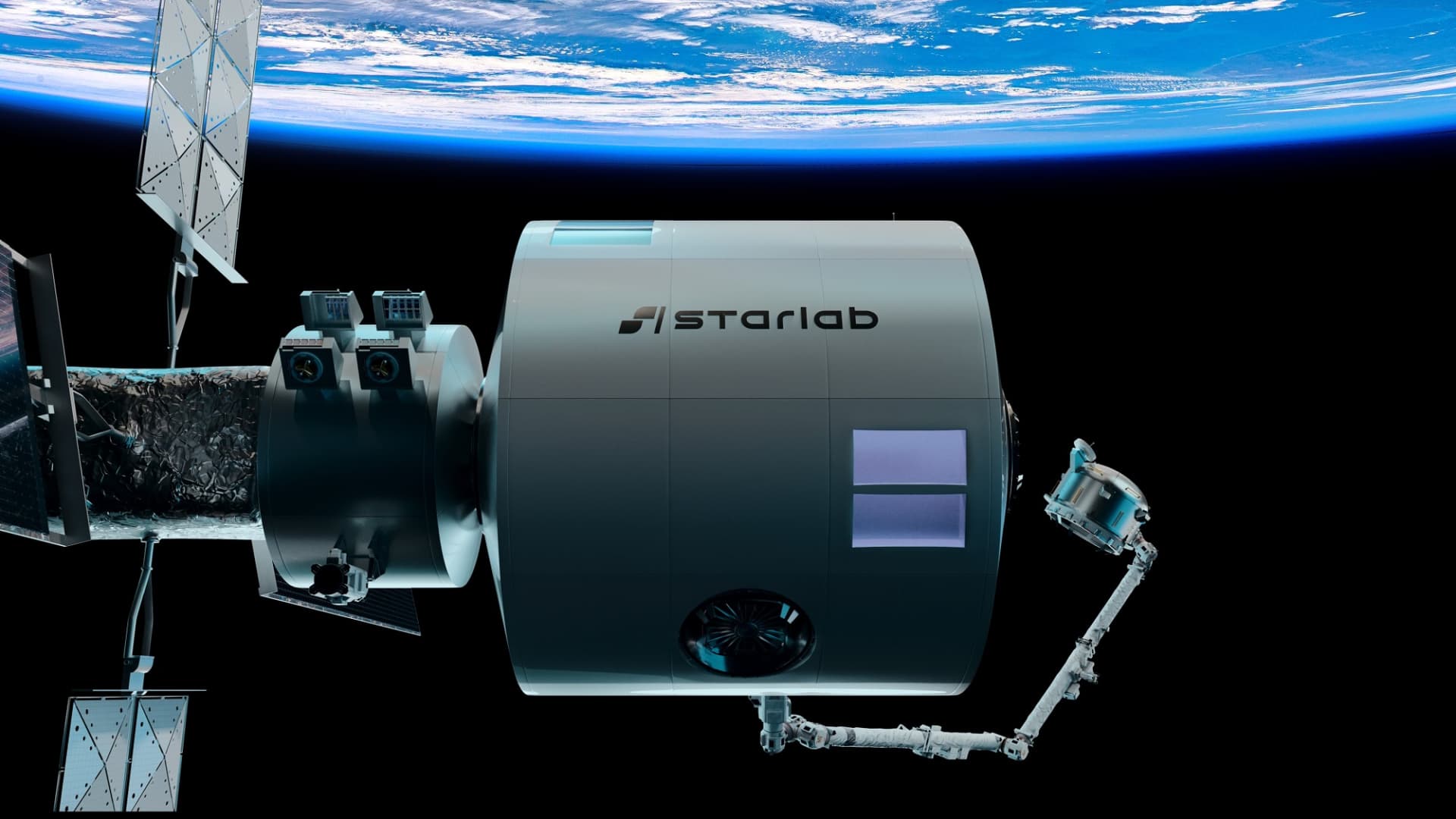An artist’s rendering of the Starlab space station in low Earth orbit.
Voyager Space / Starlab Space LLC
A contract written in the stars.
Private station Starlab will fly on a Starship rocket later this decade to get to orbit, the companies’ developing both spacecraft announced on Wednesday.
Starlab – being built by Voyager Space and Airbus through a joint venture, alongside partners including Northrop Grumman and Hilton – is planned to launch on a single mission of SpaceX’s mammoth rocket.
Starlab represents one of the earliest commercial customers to order a Starship launch from SpaceX. The companies did not disclose the launch contract’s value.
The station is one of several currently in development by U.S. companies, as NASA prepares to retire the International Space Station in 2030.
Sign up here to receive weekly editions of CNBC’s Investing in Space newsletter.
Voyager and Airbus are targeting as early as 2028 for Starlab’s launch. The space station’s four-year development and construction timeline also gives SpaceX time to move forward with Starship, advancing from demonstration flights to launching customer spacecraft.
SpaceX’s next-generation Starship spacecraft atop its powerful Super Heavy rocket is launched from the company’s Boca Chica launchpad on an uncrewed test flight, near Brownsville, Texas, on Nov. 18, 2023.
Joe Skipper | Reuters
Starlab’s modules are designed to be about 26 feet in diameter, or around twice the diameter of ISS modules – limiting the number of rockets that could support launching the space station in one mission.
Voyager Chairman and CEO Dylan Taylor believes launching all of Starlab at once on Starship is “the right way to de-risk our program.”
“You then don’t have to do risky on-orbit assembly and multiple launches,” Taylor told CNBC.
Voyager and Airbus are undergoing design reviews alongside NASA, as Starlab has previously won funding under the agency’s Commercial LEO Destinations program.
The companies are focusing the habitat’s design on the market for microgravity research in space, with Starlab designed to continuously support a crew of four people and last as many as 30 years in orbit.


